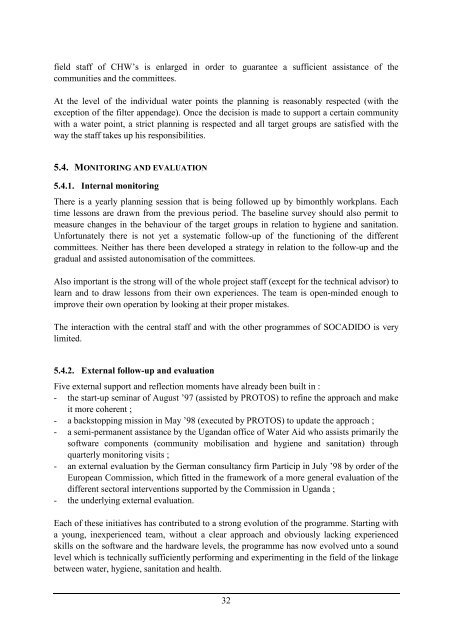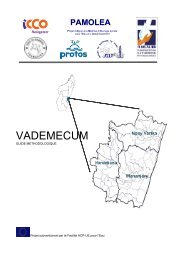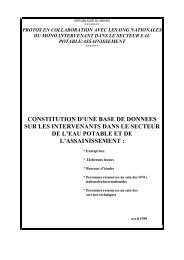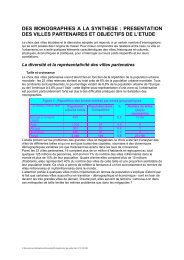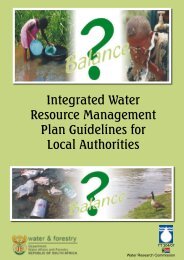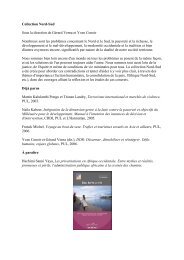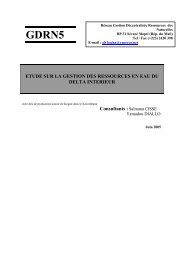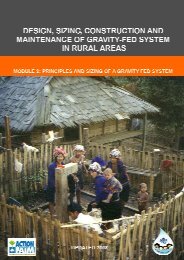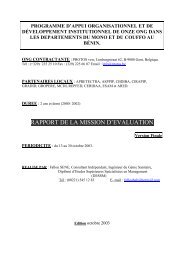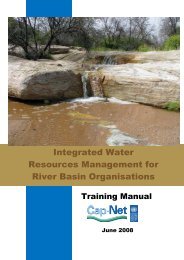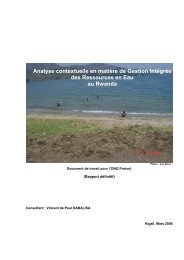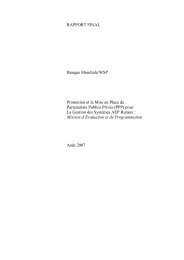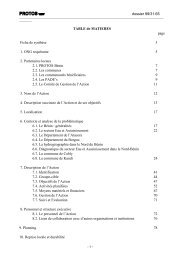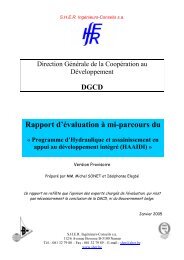table of contents preamble 1. summary - ACT - Advanced ...
table of contents preamble 1. summary - ACT - Advanced ...
table of contents preamble 1. summary - ACT - Advanced ...
Create successful ePaper yourself
Turn your PDF publications into a flip-book with our unique Google optimized e-Paper software.
field staff <strong>of</strong> CHW’s is enlarged in order to guarantee a sufficient assistance <strong>of</strong> the<br />
communities and the committees.<br />
At the level <strong>of</strong> the individual water points the planning is reasonably respected (with the<br />
exception <strong>of</strong> the filter appendage). Once the decision is made to support a certain community<br />
with a water point, a strict planning is respected and all target groups are satisfied with the<br />
way the staff takes up his responsibilities.<br />
5.4. MONITORING AND EVALUATION<br />
5.4.<strong>1.</strong> Internal monitoring<br />
There is a yearly planning session that is being followed up by bimonthly workplans. Each<br />
time lessons are drawn from the previous period. The baseline survey should also permit to<br />
measure changes in the behaviour <strong>of</strong> the target groups in relation to hygiene and sanitation.<br />
Unfortunately there is not yet a systematic follow-up <strong>of</strong> the functioning <strong>of</strong> the different<br />
committees. Neither has there been developed a strategy in relation to the follow-up and the<br />
gradual and assisted autonomisation <strong>of</strong> the committees.<br />
Also important is the strong will <strong>of</strong> the whole project staff (except for the technical advisor) to<br />
learn and to draw lessons from their own experiences. The team is open-minded enough to<br />
improve their own operation by looking at their proper mistakes.<br />
The interaction with the central staff and with the other programmes <strong>of</strong> SOCADIDO is very<br />
limited.<br />
5.4.2. External follow-up and evaluation<br />
Five external support and reflection moments have already been built in :<br />
- the start-up seminar <strong>of</strong> August ’97 (assisted by PROTOS) to refine the approach and make<br />
it more coherent ;<br />
- a backstopping mission in May ’98 (executed by PROTOS) to update the approach ;<br />
- a semi-permanent assistance by the Ugandan <strong>of</strong>fice <strong>of</strong> Water Aid who assists primarily the<br />
s<strong>of</strong>tware components (community mobilisation and hygiene and sanitation) through<br />
quarterly monitoring visits ;<br />
- an external evaluation by the German consultancy firm Particip in July ’98 by order <strong>of</strong> the<br />
European Commission, which fitted in the framework <strong>of</strong> a more general evaluation <strong>of</strong> the<br />
different sectoral interventions supported by the Commission in Uganda ;<br />
- the underlying external evaluation.<br />
Each <strong>of</strong> these initiatives has contributed to a strong evolution <strong>of</strong> the programme. Starting with<br />
a young, inexperienced team, without a clear approach and obviously lacking experienced<br />
skills on the s<strong>of</strong>tware and the hardware levels, the programme has now evolved unto a sound<br />
level which is technically sufficiently performing and experimenting in the field <strong>of</strong> the linkage<br />
between water, hygiene, sanitation and health.<br />
32


